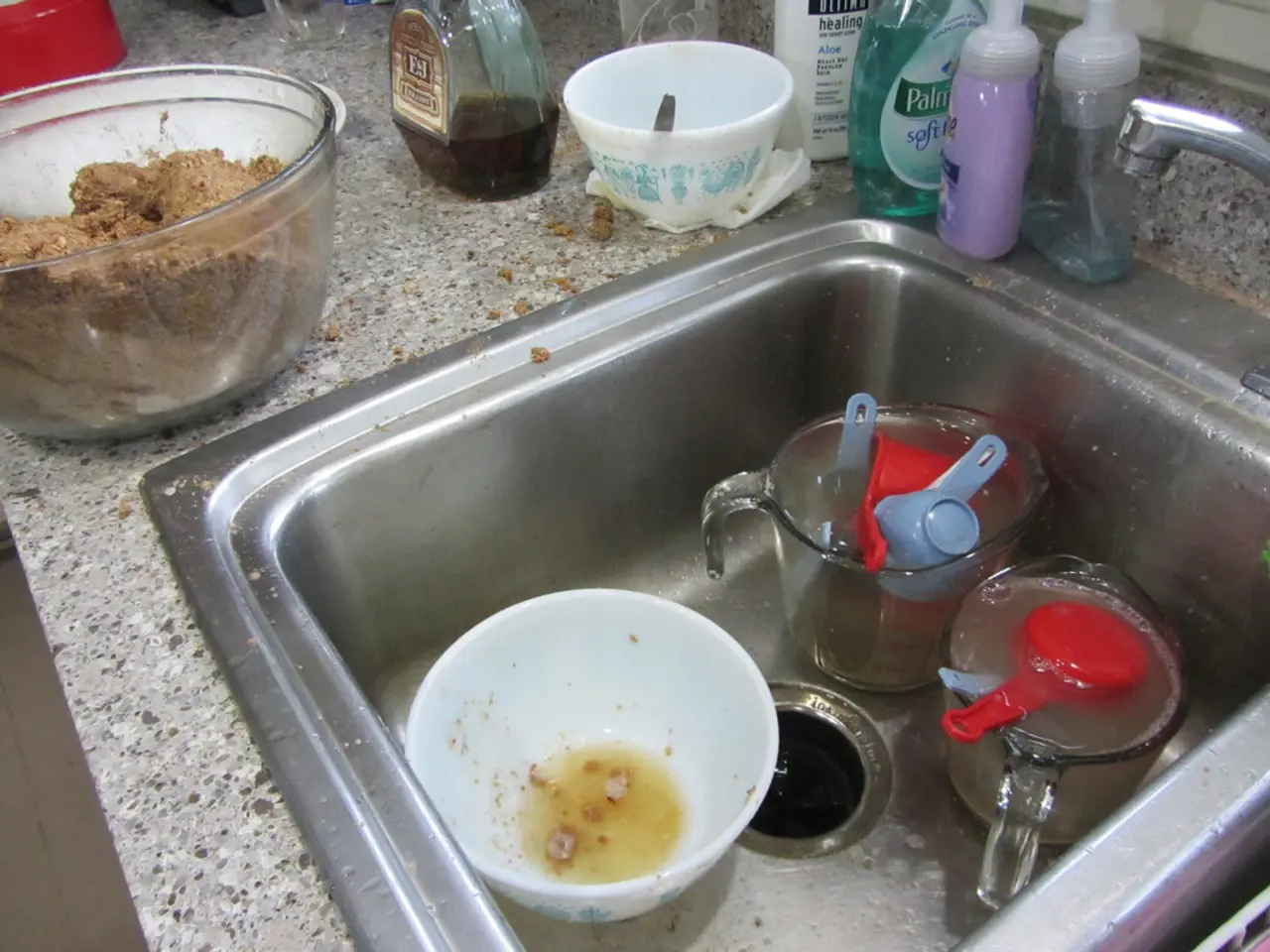Research reveals presence of 'permanent pollutants' in reusable menstrual hygiene items
In a groundbreaking study, researchers from the University of Notre Dame and other institutions have discovered that a significant number of reusable menstrual and incontinence products contain Per- and Polyfluoroalkyl Substances (PFAS), often referred to as "forever chemicals." These chemicals, known for their resistance to breaking down, can enter our bodies through the skin and have been linked to immune, hormonal, and developmental issues.
The study, led by Graham Peaslee, professor emeritus in the University of Notre Dame Department of Physics and Astronomy, found that approximately 30% of the tested products showed signs of intentionally added PFAS. These chemicals are likely used for waterproofing, raising concerns about safety, especially given prolonged skin contact and the heightened vulnerability of adolescents and young women.
One of the most common PFAS detected was neutral PFAS like fluorotelomer alcohols, particularly 8:2 FTOH, which can break down into the toxic PFOA when absorbed into the body.
Despite the notable presence of PFAS, particularly in period underwear and reusable pads, there are currently no specific regulations or mandatory guidelines that require identification or disclosure of PFAS in reusable menstrual products. This lack of transparency is a cause for concern, with many companies not disclosing PFAS use on product labels or ingredient lists.
The study, which tested 59 new reusable menstrual and incontinence items from North America, South America, and Europe, found PFAS in every single product tested. The presence of these chemicals in these products raises new safety questions, especially given the rapid growth of the reusable menstrual and incontinence product market, which is marketed as environmentally conscious.
However, the study also found that not all brands used PFAS in their products, indicating it's possible to make reusable menstrual products without them. For consumers seeking PFAS-free alternatives, the study suggests looking for menstrual products that are certified organic or that specify PFAS-free materials, or brands that provide transparency with ingredient disclosure or third-party testing.
Researchers and advocates urge mandatory testing, transparent labeling, and safer alternatives to protect consumers. This study and others like it will help regulators and manufacturers identify product markets where PFAS are being used and find better alternatives moving forward.
In summary:
- Regulations on PFAS in reusable menstrual products are currently lacking.
- PFAS are found in a significant number of reusable menstrual and incontinence products, often intentionally for waterproofing.
- Disclosure and labeling of PFAS use are largely absent, with companies rarely disclosing PFAS use.
- Health concerns related to PFAS include cancer, hormonal and reproductive issues, and persistent environmental contamination.
- Eco-friendly PFAS-free alternatives do exist, but they are not always clearly identified.
- Calls to action include mandatory testing, transparent labeling, and safer alternatives.
Therefore, buyers concerned about PFAS should seek brands that explicitly advertise PFAS-free or organic materials and support stronger regulatory action for safety and transparency.
Read also:
- Critics Among Influencers: Championing 'Natural' Birth Control Methods. Essential Information Explained
- Upcoming 2nd Sustainable Agriculture Summit of 2025 Advocates for Green Expansion to Drive India's Economic Advancement
- Immersive Technology Allows Medical Students to Engage in Realistic Case Studies within a VR Environment
- Are Aromas Capable of Boosting Cognitive Clarity?








